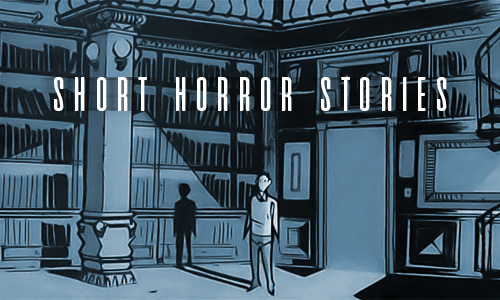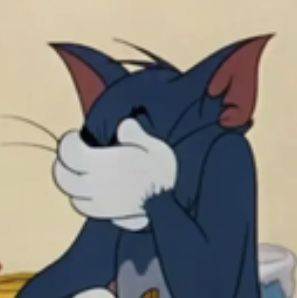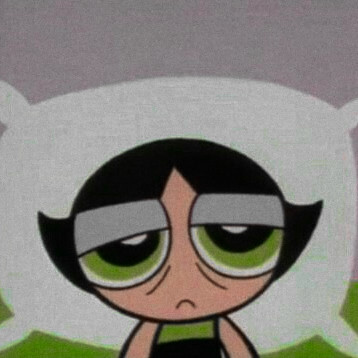GLOSS - Global Language Online Support System
GLOSS - Global Language Online Support System
This online resource has tons of resources for lots of different languages, and it is totally free!
There are lots of lessons catered to different levels which tailor vocab practice as well as listening and reading comprehension. I would say that the vocabulary and scenarios are generally more geared up towards security/defence and diplomacy, so if you are studying international relations or something geared towards the international sphere, this may be particularly interesting!


Then you can select different types of activities, which you can download onto your computer as MP3s and PDFs. The activities are categorised based on what skill they train. There are reading and vocab activities that help build up knowledge. Although the topics are pretty specific, they are really useful for getting vocab practice in areas that you are not so familiar with!


The activities are diverse and varied, with explanations for answers that were not correct!
There is also a glossary for all the new words, which has an audio file to listen to the pronunciation by a native speaker. This is particularly useful for self study, especially when contact with native speakers is less frequent.

All in all I really rate the website, the resources are a really great compliment to language studies, and although they are kind of ‘old school’ in their approach, they seem really effective!
***The link***
https://gloss.dliflc.edu/
More Posts from Princesssarcasm789 and Others
It might seem like the hardest thing in the world until you do it, then you’ll wonder why you didn’t do it sooner.
Do the hard thing today.






queen of expressions, nobara











aegon ii targaryen & aemond targaryen
The Elektra Complex by @filmnoirsbian // house of the dragon 1.06 // chapter 40 of “crimson rivers” by @mayzarbewithyou // house of the dragon 1.07 // killing flies by michael dickman // house of the dragon 1.09 // burial at thebes 'antigone'











"Didn't anyone ever tell you it's not a hero's job to be happy?"
!SPOILERS!
ANOTHER BIG THING INTERNATIONAL VIEWERS MAY NOT PICK UP FOR SQUID GAME:
any viewer for squid game will understand that each game/round in the show are all childhood games from korea. this is well known.
but a smaller, unsubtle nod to another korean classic is actually the very last episode. it's titled 'A Lucky Day' or in korean '운수 좋은 날'. a modern classical literature text written by a korean author in 1924 about a rickshaw driver who went out to work despite his sick wife's protests, had a unusually lucky day and earned enough money, but upon returning home found his wife dead.
a big symbolism noted in the book itself is its showcase of rain and the wife's yearning (for warm broth). the very last game/battle between gihun and sangwoo ends in rain. when gihun returns home its raining heavily. gihun gets fish (well albeit rather reluctantly takes it from sangwoo's mom) for his own mother only to find her dead. despite how the games initially seems favourable in gihun's part, his world ends up rotten to the core when he returns back home. everyone he cared for now died.
i just feel like the director-writer made it such that the whole plot is a big nod to old korean classics (be it games or literature) and i just didnt see this noticed in social media so just wanted to share this! very happy to see such symbolism of korean literature in squid game.
p.s. anyone notice that both junho and inho, the two brothers, are actually playing hide-and-seek throughout the show— 👁👁





🗣Anyone using a period tracker app needs to very strongly consider deleting it. Not now, but RIGHT NOW!

Your personal data that is being collected can and has already been mined and sold to marketing firms and law enforcement. You don’t need to be Margaret Atwood to imagine who your private information might be sold to, or what period-tracking data might be used for in a Republican state, or in a conservative court of law.
I really hate to sound alarmist, but this is Christofascist America in 2022, please protect yourself and act accordingly.
👉🏿 https://www.consumerreports.org/health-privacy/what-your-period-tracker-app-knows-about-you-a8701683935/
👉🏿 https://www.washingtonpost.com/technology/2022/05/04/abortion-digital-privacy/
👉🏿 https://www.newsnationnow.com/business/tech/abortion-data-privacy-question/

This is a compiled list of some of my favorite pieces of short horror fiction, ranging from classics to modern-day horror, and includes links to where the full story can be read for free. Please be aware that any of these stories may contain subject matter you find disturbing, offensive, or otherwise distressing. Exercise caution when reading. Image art is from Scarecrow: Year One.
PSYCHOLOGICAL: tense, dread-inducing horror that preys upon the human psyche and aims to frighten on a mental or emotional level.
“The Frolic” by Thomas Ligotti, 1989
“Button, Button” by Richard Matheson, 1970
“89.1 FM” by Jimmy Juliano, 2015
“The Yellow Wallpaper” by Charlotte Perkins Gilman, 1892
“Death at 421 Stockholm Street“ by C.K. Walker, 2016
“The Ones Who Walk Away from Omelas” by Ursula K. Le Guin, 1973
“An Empty Prison” by Matt Dymerski, 2018
“A Suspicious Gift” by Algernon Blackwood, 1906
CURSED: stories concerning characters afflicted with a curse, either by procuring a plagued object or as punishment for their own nefarious actions.
“How Spoilers Bleed” by Clive Barker, 1991
“A Warning to the Curious” by M.R. James, 1925
“each thing i show you is a piece of my death” by Stephen J. Barringer and Gemma Files, 2010
“The Road Virus Heads North” by Stephen King, 1999
“Ring Once for Death” by Robert Arthur, 1954
“The Mary Hillenbrand Cassette“ by Jimmy Juliano, 2016
“The Monkey’s Paw” by W.W. Jacobs, 1902
MONSTERS: tales of ghouls, creeps, and everything in between.
“The Curse of Yig” by H.P. Lovecraft and Zealia Bishop, 1929
“The Oddkids” by S.M. Piper, 2015
“Nightmare at 20,000 Feet” by Richard Matheson
“The Graveyard Rats” by Henry Kuttner, 1936
“Tall Man” by C.K. Walker, 2016
“The Quest for Blank Claveringi“ by Patricia Highsmith, 1967
“The Showers” by Dylan Sindelar, 2012
CLASSICS: terrifying fiction written by innovators of literary horror.
“The Tell-Tale Heart” by Edgar Allan Poe, 1843
“The Interlopers” by Saki, 1919
“The Statement of Randolph Carter“ by H.P. Lovecraft, 1920
“The Damned Thing” by Ambrose Pierce, 1893
“The Legend of Sleepy Hollow” by Washington Irving, 1820
“August Heat” by W.F. Harvey, 1910
“The Black Cat” by Edgar Allan Poe, 1843
SUPERNATURAL: stories varying from spooky to sober, featuring lurking specters, wandering souls, and those haunted by ghosts and grief.
“Nora’s Visitor” by Russell R. James, 2011
“The Pale Man” by Julius Long, 1934
“A Collapse of Horses” by Brian Evenson, 2013
“The Jigsaw Puzzle” by J.B. Stamper, 1977
“The Mayor Will Make A Brief Statement and then Take Questions” by David Nickle, 2013
“The Night Wire” by H.F. Arnold, 1926
“Postcards from Natalie” by Carrie Laben, 2016
UNSETTLING: fiction that explores particularly disturbing topics, such as mutilation, violence, and body horror. Not recommended for readers who may be offended or upset by graphic content.
“Survivor Type” by Stephen King, 1982
“I’m On My Deathbed So I’m Coming Clean…” by M.J. Pack, 2018
“In the Hills, the Cities” by Clive Barker, 1984
“The New Fish” by T.W. Grim, 2013
“The Screwfly Solution” by Racoona Sheldon, 1977
“In the Darkness of the Fields” by Ho_Jun, 2015
“The October Game” by Ray Bradbury, 1948
“I Have No Mouth, and I Must Scream” by Harlan Ellison, 1967
HAPPY READING, HORROR FANS!
Cartoon icons









Sometimes I forget how much my brother and I are Sirius and Regulus variants until a family crisis happens and I'm making jokes and getting tattoos while he's sitting there rolling his eyes and doing shots.
-
 redvolpe reblogged this · 3 weeks ago
redvolpe reblogged this · 3 weeks ago -
 redvolpe liked this · 3 weeks ago
redvolpe liked this · 3 weeks ago -
 coffeecupstudy reblogged this · 4 months ago
coffeecupstudy reblogged this · 4 months ago -
 hesperwestern liked this · 5 months ago
hesperwestern liked this · 5 months ago -
 flippedorbit reblogged this · 5 months ago
flippedorbit reblogged this · 5 months ago -
 flippedorbit liked this · 5 months ago
flippedorbit liked this · 5 months ago -
 ascelhire liked this · 5 months ago
ascelhire liked this · 5 months ago -
 frozennautical reblogged this · 5 months ago
frozennautical reblogged this · 5 months ago -
 frozennautical liked this · 5 months ago
frozennautical liked this · 5 months ago -
 sleeepy-sun reblogged this · 5 months ago
sleeepy-sun reblogged this · 5 months ago -
 sleeepy-sun liked this · 5 months ago
sleeepy-sun liked this · 5 months ago -
 antoine-de-sade reblogged this · 1 year ago
antoine-de-sade reblogged this · 1 year ago -
 toomanymikes reblogged this · 1 year ago
toomanymikes reblogged this · 1 year ago -
 toomanymikes liked this · 1 year ago
toomanymikes liked this · 1 year ago -
 sexyunicornbacon liked this · 1 year ago
sexyunicornbacon liked this · 1 year ago -
 urlove-crt liked this · 1 year ago
urlove-crt liked this · 1 year ago -
 shawneserenee liked this · 1 year ago
shawneserenee liked this · 1 year ago -
 acidgrey reblogged this · 1 year ago
acidgrey reblogged this · 1 year ago -
 nowtoboldlygo reblogged this · 1 year ago
nowtoboldlygo reblogged this · 1 year ago -
 heavenlyreads reblogged this · 1 year ago
heavenlyreads reblogged this · 1 year ago -
 kazhetsya-vy1 liked this · 1 year ago
kazhetsya-vy1 liked this · 1 year ago -
 moekoiz liked this · 1 year ago
moekoiz liked this · 1 year ago -
 blue-wolf-seeker liked this · 1 year ago
blue-wolf-seeker liked this · 1 year ago -
 tricornking liked this · 1 year ago
tricornking liked this · 1 year ago -
 ayin-me-yesh reblogged this · 1 year ago
ayin-me-yesh reblogged this · 1 year ago -
 ayin-me-yesh liked this · 1 year ago
ayin-me-yesh liked this · 1 year ago -
 aishasinternet liked this · 1 year ago
aishasinternet liked this · 1 year ago -
 moldwood liked this · 1 year ago
moldwood liked this · 1 year ago -
 pradamiumiuse liked this · 1 year ago
pradamiumiuse liked this · 1 year ago -
 edeloy liked this · 1 year ago
edeloy liked this · 1 year ago -
 aureliamarianella liked this · 1 year ago
aureliamarianella liked this · 1 year ago -
 starrystarrylangblr reblogged this · 1 year ago
starrystarrylangblr reblogged this · 1 year ago -
 paxperstudium reblogged this · 1 year ago
paxperstudium reblogged this · 1 year ago -
 paxperstudium liked this · 1 year ago
paxperstudium liked this · 1 year ago -
 blearnslanguages reblogged this · 1 year ago
blearnslanguages reblogged this · 1 year ago -
 theblaquedollie liked this · 1 year ago
theblaquedollie liked this · 1 year ago -
 azurine-cryptid liked this · 1 year ago
azurine-cryptid liked this · 1 year ago -
 itsbeenalongtimecomingbut liked this · 1 year ago
itsbeenalongtimecomingbut liked this · 1 year ago